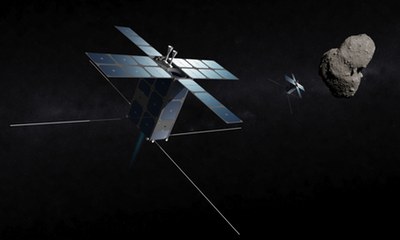Why the space resources section of federal law is invalidby Justin P. Rostoff
|
| The United States is prohibited from granting any rights to asteroid or space resources because the United States is prohibited from claiming any rights to asteroid or space resources. One cannot give what one does not own. |
Ownership is not just the physical possession of property, but the rights in/to the property. I argue the law is invalid primarily due to the wording of Articles I and II of the Outer Space Treaty. These are two key provisions that should govern claims to private property ownership in outer space.
Article I states that the “use of outer space, including the moon and other celestial bodies [is for the] province of all mankind.” According to the customary international use of “province of all mankind,” outer space belongs equally to every human on Earth; very similar to the treatment of Antarctica. How, then, can a private party use celestial bodies for resource extraction and profit therefrom, all the while excluding and benefitting at the detriment of others? By that reading of Article I, such use is prohibited.
Article II sets forth that no part of outer space is “subject to national appropriation by claim of sovereignty, by means of use or occupation, or by any other means.” Without the right to claim private property rights in outer space, with respect to the law, the United States has no authority to grant its citizens private property rights to asteroid or space resources. The United States is prohibited from granting any rights to asteroid or space resources because the United States is prohibited from claiming any rights to asteroid or space resources. One cannot give what one does not own. Thus, a US citizen cannot validly claim ownership to asteroid or space resources under Section 51303 because such rights do not exist.
When dealing with a subject like outer space, I am not persuaded that unilateral action without international cooperation is sufficient. We must respect the importance of outer space and its related impact upon the entire human species. But, most importantly, we must respect and abide by the rules and regulations mutually assented to by the international community, and Section 51303 seems to violate the governing body of international space law. For a more detailed analysis of the legality of asteroid mining and the SPACE Act’s validity, please see my forthcoming law review article, “Asteroids for ‘Sale’: Private Property Rights in Outer Space, and the SPACE Act of 2015,” 51 New Eng. L. Rev. (forthcoming 2017).
